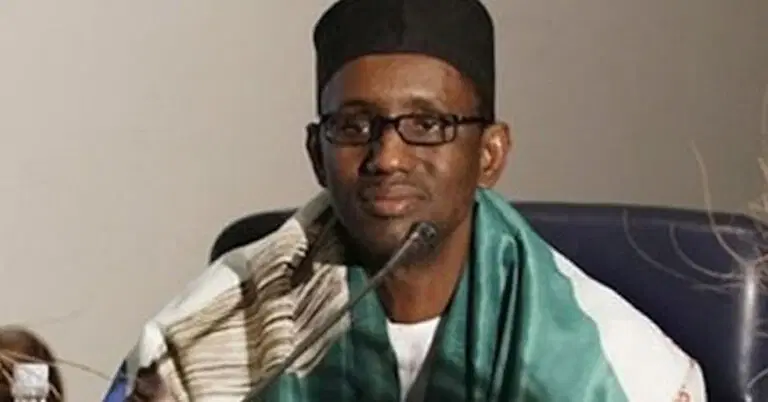The National Security Adviser (NSA), Mallam Nuhu Ribadu, has attributed the deepening wave of insecurity across Nigeria to the growing levels of hunger and poverty, stressing that tackling these twin challenges is vital for long-term peace and national development.
Ribadu’s remarks, delivered on Monday during the National Security Seminar organised by the Alumni Association of the National Defence College (AANDEC) in Abuja.
The seminar, themed, “Combating Hunger and Poverty for Sustainable Peace and Development in Nigeria,” the event brought together top security officials, policymakers, and defence experts to deliberate on the non-kinetic roots of insecurity.
Represented by the Director of Defence Affairs in the Office of the NSA, Maj. Gen. Peter Mala, Ribadu emphasized the link between economic hardship and national unrest.
“Hunger and poverty are not merely social concerns; they are catalysts for insecurity, crime, violence, and social disintegration,” he said.
“These issues form a vicious cycle, poverty leads to insecurity, and insecurity, in turn, deepens poverty.”
According to him, President Bola Tinubu’s administration has recognized this cycle and is prioritizing policies that target its root causes.
Ribadu pointed to ongoing reforms in agriculture, social investment schemes, and targeted security interventions aimed at boosting food production, law enforcement, and rural infrastructure.
He assured that the Office of the NSA would continue to lead a multi-pronged approach, combining military operations with civil engagement, to address insecurity from all fronts.
“Despite progress, challenges like unemployment, hunger, and youth disenfranchisement persist and require deeper, long-term solutions,” he added, calling for inclusive, strategic, and sustainable responses from both government and society.
In addition, the Chief of Defence Staff (CDS), Gen. Christopher Musa, warned that hunger and poverty had transformed from social challenges into critical national security threats.
Read also: Tinubu bows out as ECOWAS chair, charges successor for vigilance, reform
Represented at the event by the Chief of Defence Training and Operations, Rear Admiral Ibrahim Shetimma, Gen. Musa advocated a nationwide response to the economic roots of insecurity.
“Insecurity today is not only defined by weapons but also by economic deprivation, food insecurity, and social dislocation,” he said.
He highlighted the plight of the North Central region, particularly Benue State, once regarded as Nigeria’s food basket, which has been ravaged by banditry, displacement, and protracted farmer-herder conflicts.
Musa said disruptions to farming, the illegal occupation of farmlands, and widespread rural-urban migration were contributing to food inflation, forced displacement, and rising instability across the country.
He urged policymakers to direct immediate attention toward revitalizing grassroots agriculture through better access to loans, rural infrastructure, and viable market systems.
“With the migration of rural youth to urban centres, agricultural productivity is declining,” the CDS noted.
“We must make farming attractive again, not as a last resort, but as a national duty and a prestigious calling.”
On his part, the Minister of Defence, Muhammed Badaru, called for a people-centred approach to security by addressing poverty, youth unemployment, and marginalization.
Badaru emphasized a collaborative approach, warning that Nigeria’s multifaceted security problems cannot be solved by military might alone.
“In a world where security threats know no borders, collective action is needed,” he said, praising the dedication and ingenuity of Nigeria’s Armed Forces amidst mounting national threats.
He also commended President Tinubu for placing citizens’ welfare at the centre of the national agenda and described the seminar as an essential platform for shaping sustainable security solutions.
Meanwhile, the President of AANDEC, Air Commodore Darlington Abdullahi (retd), described hunger and poverty as “strategic threats” that could undermine the country’s foundations if not urgently addressed.
Quoting an adage, “The children of the poor you fail to train will never let your children have peace,” Abdullahi warned that failure to meet the socio-economic needs of citizens would open the door to extremism and violence.
“When millions suffer from hunger and poverty, they become vulnerable to exploitation by those with ill intentions,” he stated.
He called for sustained investments in education, skills development, and livelihood opportunities to build a secure and stable future.
Abdullahi also proposed the creation of a vocational and leadership development centre for widows and children of fallen heroes.
He described this as a step toward healing and reintegration, saying it would empower the most vulnerable and uphold the legacy of those who gave their lives for the country.









